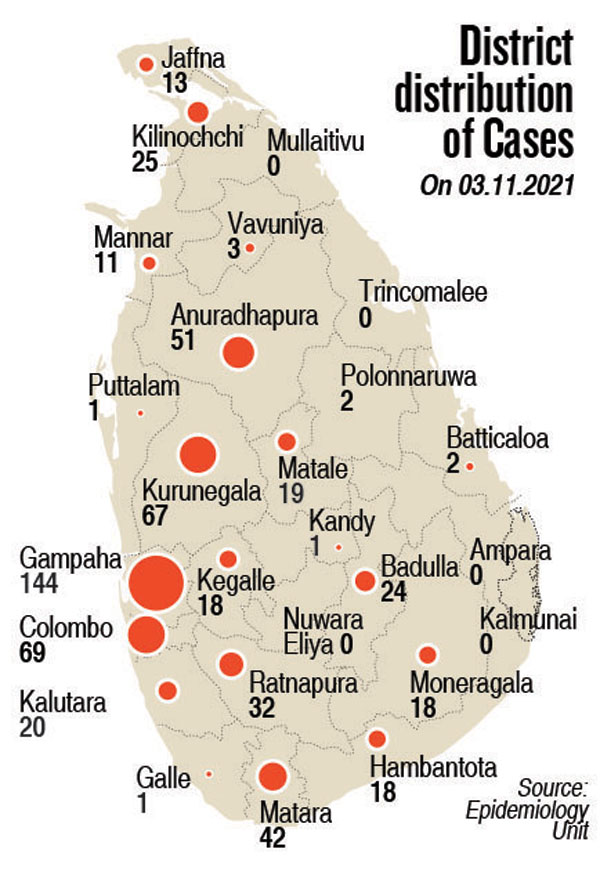News
Caution, need of the hour as infections and deaths show slight rise – Experts
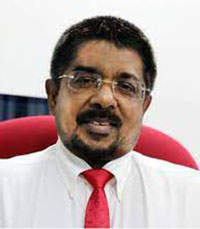
Dr. Ranjith Batuwanthudawe
Complacency among the people and the authorities will pave a strong and regrettable pathway for a resurgence of COVID-19, warned many experts this week.
“COVID-19 is not over yet. It is not vanquished and everyone should be alert and not be comfortable within a false sense of complacency that just because the vaccination programme is rolling out well, the country is free of the virus,” said an expert, stressing that such assumptions will leave room for the virus to get a stranglehold once again.
Another underscored: “We need to ensure strong surveillance. A critical need is to monitor the number of people who are hit by severe disease and also the death toll. At this stage, it is less important to try to catch all the cases.”
When asked whether Sri Lanka’s daily testing numbers [both RT-PCRs and rapid antigen tests (RATs)] are adequate, the experts explained that it is important to test for all severe respiratory diseases. There is a need to ensure strong surveillance of a subset of acute respiratory virus infections across the island at hospital outpatient department (OPD) settings.
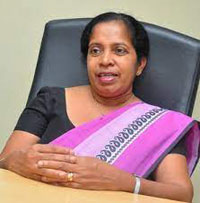
Dr. Chithramalee de Silva
“The other vital need is to monitor for new variants. The Mu variant is ‘very concerning’ because it appears to have the capacity to significantly (not completely) evade vaccine immunity,” the expert said.
Meanwhile, several of those who addressed Friday’s media briefing at the Health Promotion Bureau (HPB) also pointed out that there seemed to be an increase in the number of COVID-19 infections.
The Director of Maternal and Child Health, Dr. Chithramalee de Silva said: “We have observed that there is a slight increase in the number of COVID-19 infected expectant mothers being admitted to hospitals in the past 2/3 days, even though earlier there was a decrease.”
It was the same with children, she said, urging parents to send their children to school taking all safety precautions but not go on unnecessary trips with their children now that travel restrictions have been lifted.
“Remember your children are not vaccinated. It is very important for them to wear their masks, follow hand hygiene measures and avoid gatherings which could expose them to the virus,” she added.
Referring to vaccination, Dr. de Silva said that all expectant mothers should take both doses of the vaccine. This can be at any stage of the pregnancy. More than 95% of expectant mothers have been vaccinated. This is while eligible children will be given one dose of the vaccine and those with co-morbidities two doses.
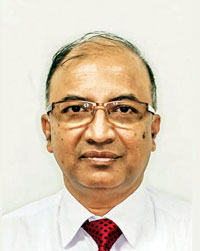
Dr. Hemantha Herath
Making a special announcement, HPB Director Dr. Ranjith Batuwanthudawe said that a vaccination programme is held in all central Medical Officer of Health (MOH) offices on Saturdays to cover anyone who has not got the vaccine or missed out on the second dose due to some reason or another.
“Contact your MOH office, find out the date and time when you can get the vaccine,” he said.
The Head of the Disaster Preparedness and Response Division of the Health Ministry, Dr. Hemantha Herath said that the 3rd dose is being given currently to all health and other frontline workers who have completed the six months after the 2nd dose. Gradually this will be expanded to the other categories once they complete six months as well.
When asked how people would get to know about the extra jab, he said that the health authorities would make announcements and the MOHs would also provide the details of dates and times to the public. forward to managing Post COVID-19 Syndrome.
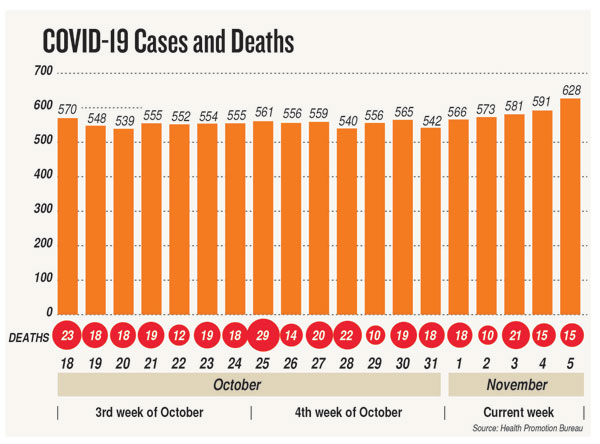
| Premature baby and mother go home after six months Castle Street Hospital does its ‘usual’ to save lives and also protect patients from COVID-19 The spotlight focused on how a premier women’s hospital kept on working during the pandemic and how a premature baby and mother were looked after and protected from contracting COVID-19, at Friday’s media briefing at the Health Promotion Bureau. Six months after a very tiny premature baby weighing 520g was born at 25 weeks, both baby and mother went home this week, said Consultant Neonatologist Dr. Saman Kumara attached to the Castle Street Hospital for Women. Usually, it is very difficult for such a baby to survive, but we looked after the baby while also keeping them safe from COVID-19, he said, pointing out that a baby should normally complete 38 weeks before birth and weigh over 2,500g (2.5kg) at birth. “We had the baby at the peak of COVID-19 and it was a huge challenge to keep the mother and baby safe from COVID-19 for 6 months. Even though some staff members and other patients were affected by COVID-19, we protected the baby and the mother,” added Dr. Kumara. The Director of the Castle Street Hospital, Dr. Pradeep Wijesinghe said that they did not stop routine work. The only difference was testing those who came to hospital and if positive directing them to a separate ward. Kept in isolation, they were managed and provided oxygen or ICU services when needed.
| |
| Sinovac immunity wanes quicklyThe Sinovac vaccine immunity wanes very quickly because the peak antibody is much lower than what is produced by the Pfizer vaccine, researchers in Hong Kong have found, confirming earlier projections. Another important finding by these researchers is that when these people got a Sinovac (CoronaVac) booster, their immunity got a boost but a Pfizer booster was much more potent and more likely to provide long lasting immunity. Sinopharm and Sinovac are both similar vaccines (inactivated whole virus vaccines). Although Sinopharm is better than Sinovac, it is learnt that there are some similarities. Therefore, it is important to follow-up immunity to Sinopharm (which has been administered widely in Sri Lanka) with Pfizer or Moderna boosters for high-risk groups, many experts reiterated. Need to be wary of Mu The Mu variant (B.1.621) is more resistant to antibodies than any other variants, a Japanese study has found. The study conducted by researchers including those at the University of Tokyo was published on Wednesday (November 3) in the New England Journal of Medicine. It had evaluated the sensitivity of the Mu variant to antibodies induced by natural COVID-19 infection or vaccination. The disturbing results showed that the Mu variant had a pronounced resistance to antibodies elicited by natural SARS-CoV-2 infection and by the Pfizer vaccine. Mu was first reported in Colombia (South America) in January and was the 5th ‘variant of interest’ to be monitored by the WHO in September. The WHO had then stated: “The Mu variant has ‘a constellation of mutations’ that suggest it may be more resistant to vaccines.” The Mu variant has been found in more than 39 countries including several European countries (the United Kingdom, France, Germany, Netherlands and Denmark); the United States of America; Canada; Japan; and South Korea. India’s COVAXIN given nod by WHO The World Health Organization (WHO) this week gave emergency-use listing (EUL) for the COVAXIN vaccine developed by India’s Bharat Biotech in collaboration with the Indian Council of Medical Research. This is an inactivated virus-based COVID-19 vaccine. The safety and efficacy of the vaccine are reportedly on par with other WHO-approved vaccines. This is the 8th vaccine to receive EUL from the WHO. The others are Pfizer, Moderna, AstraZeneca, COVISHIELD, Sinopharm, Sinovac and Johnson & Johnson vaccines. UK approves anti-viral pill The United Kingdom (UK) is the world’s first country to approve the anti-viral pill molnupiravir against COVID-19. The pill has been developed by Merck & Co. Inc., and Ridgeback Biotherapeutics based in the United States of America. Molnupiravir is an orally administered medication that inhibits the replication of certain RNA viruses and is supposed to mitigate the severity of COVID-19 in those infected by the virus. Reports said the UK approved the drug on Thursday, recommending its use in people with mild to moderate COVID-19 and at least one risk factor for developing severe illness such as obesity, older age diabetes and heart disease. This is to prevent complications as the country struggles with soaring infections in a challenging winter. Molnupiravir is to be given as soon as possible following a positive COVID-19 test and within five days of the onset of symptoms. Even though Merck has submitted data on the anti-viral pill to America’s Food and Drug Administration (FDA) and the European Medicines Agency (EMA) for emergency-use authorization (EUA), no approval has been received yet. Self-testing common in many countries A look around the world to check out testing for COVID-19 gave an insight on how other countries are handling the issue. Australia: Now Australians are able to test themselves for COVID-19 at home with at-home rapid antigen test (RAT) kits available in major supermarkets. Those who test positive are expected to present themselves for an RT-PCR test. The RATs are not counted in state testing data but health officials have stated that at-home testing would be “very useful” in preventing transmission in workplaces, schools and public transport. United Kingdom (UK): At-home testing is routine in the UK with kits available at pharmacies free of charge. The distribution of these kits began in April for people to do the tests twice-weekly, especially those who do not show symptoms. United States of America (USA): Even though the USA has approved at-home testing and been offering kits in pharmacies since March, there are shortages or the disadvantage of very high prices. Singapore: In September, Singapore began dispensing self-test kits through vending machines in housing estates. A decision had also been made to send every household 10 kits from October 22 to December, to make testing a habit. Malaysia: People have been allowed to use self-test kits since July, with the proviso that they are not meant to replace RT-PCRs but enable self-screening. Earlier these kits were available at pharmacies, healthcare facilities and clinics but in September, with a standard price being clamped, they are now available at supermarkets, convenience stores and petrol stations. China: Yet to approve self-testing kits, China has widely-available swab tests which, however, require professional laboratories to process samples. This is while the country has accelerated a mass testing programme after multiple breakouts recently. Frequent testing, sometimes mass testing, is standard practice in China, even though the health authorities have indicated that testing services remain unsatisfactory in some areas of China. Hong Kong: Both antibody and antigen tests – ordered online – can be done from home and come in the form of a nasal swab test, a pharyngeal swab test or a finger prick blood test. The results of these tests appear within 15 minutes. If a person tests positive, he/she has to undergo RT-PCR testing. Deep throat saliva (DTS) specimen collection packs are also widely available at designated distribution points and people can take their own swabs and return the samples for testing at collection points.
|
